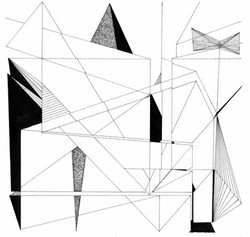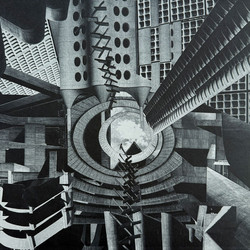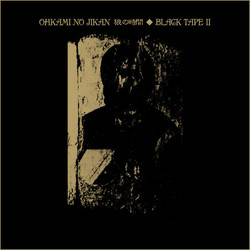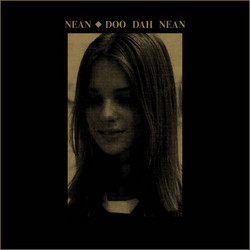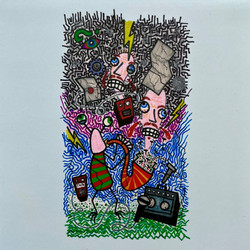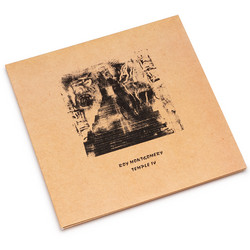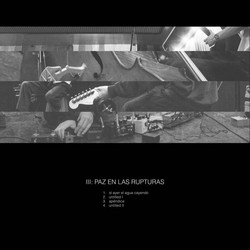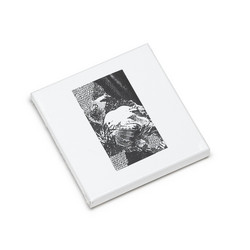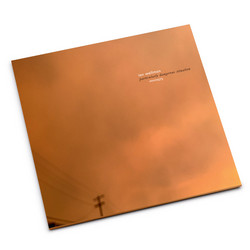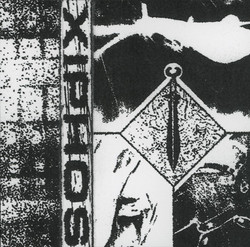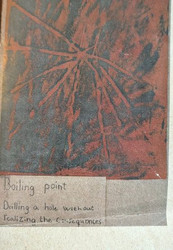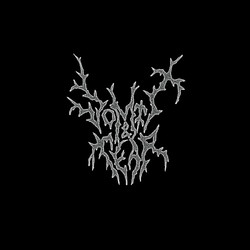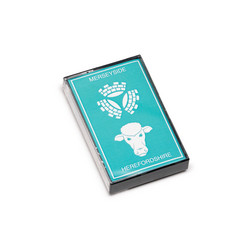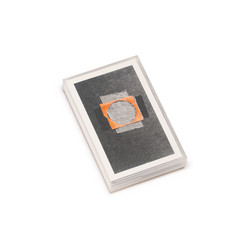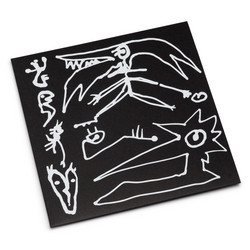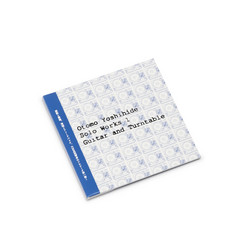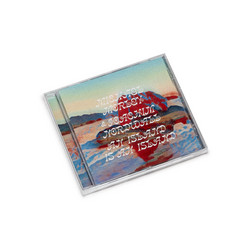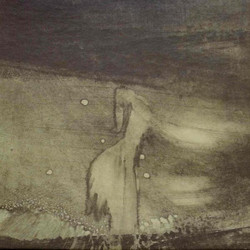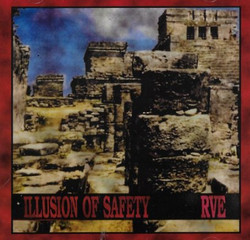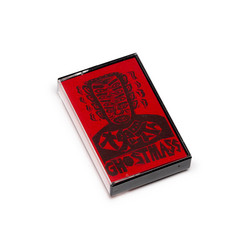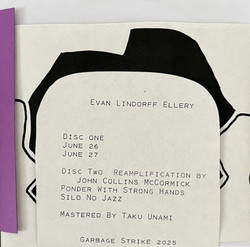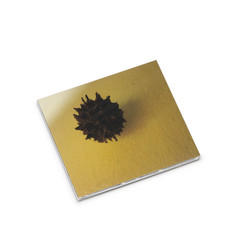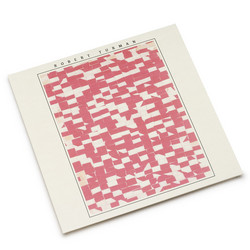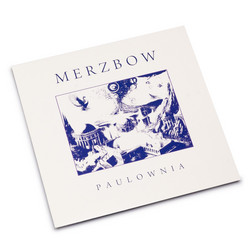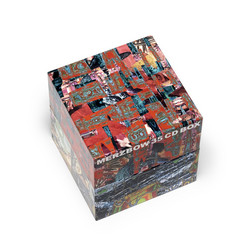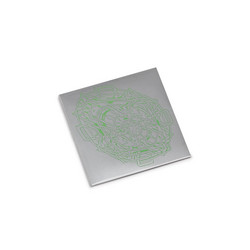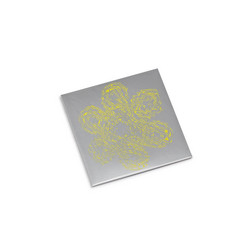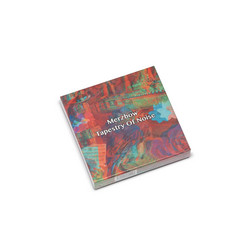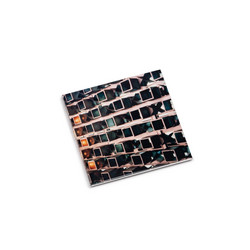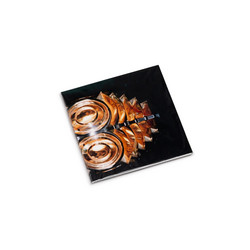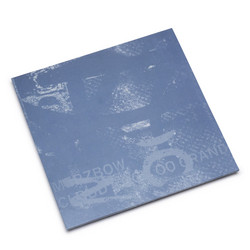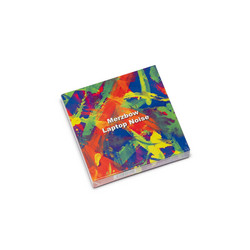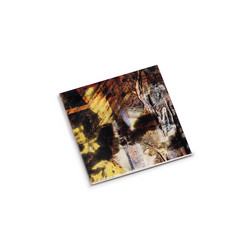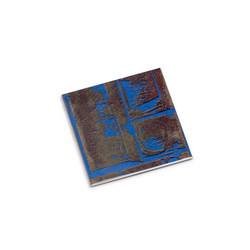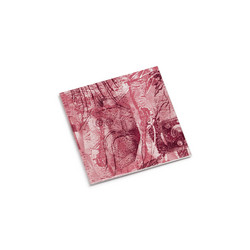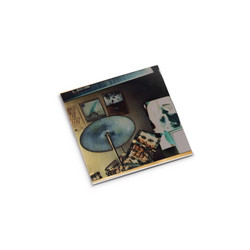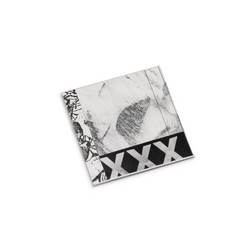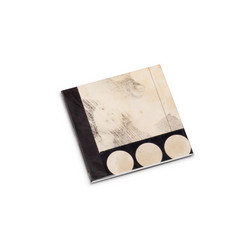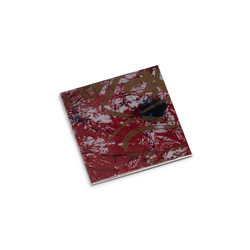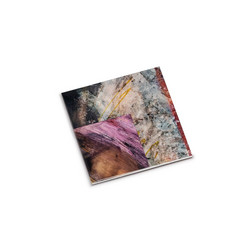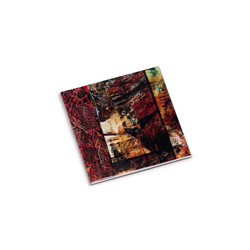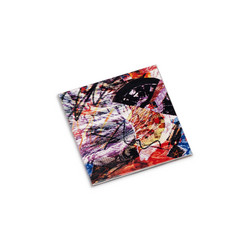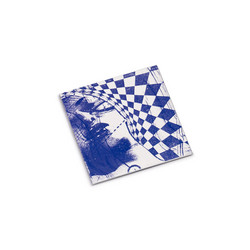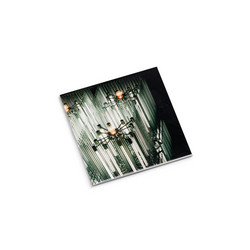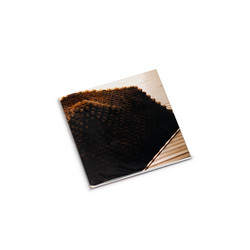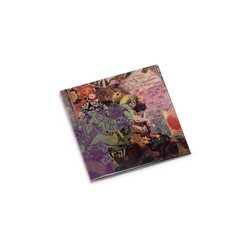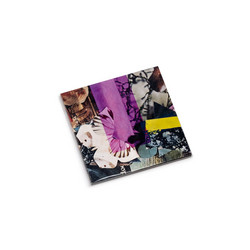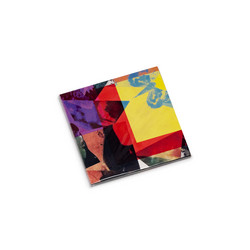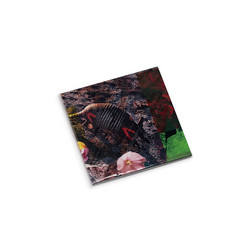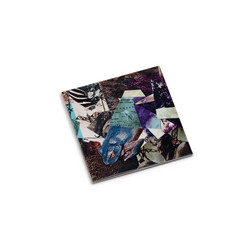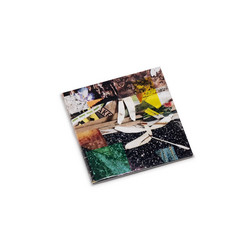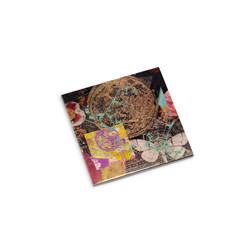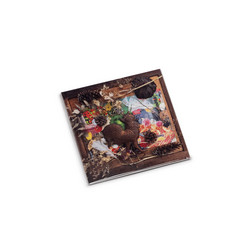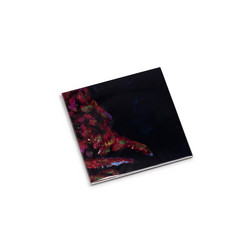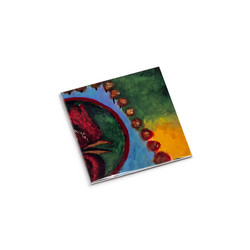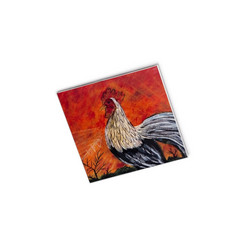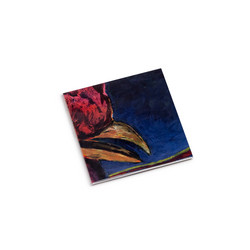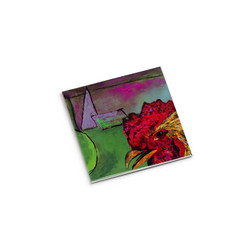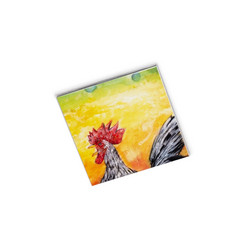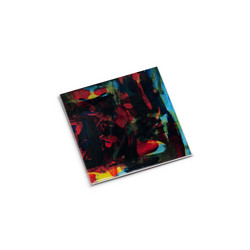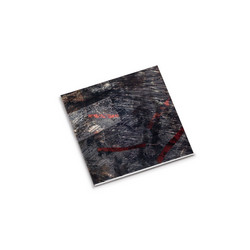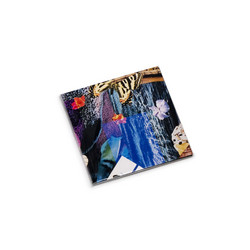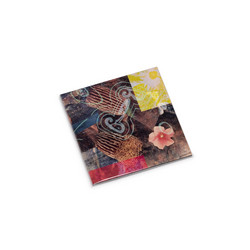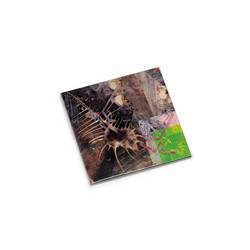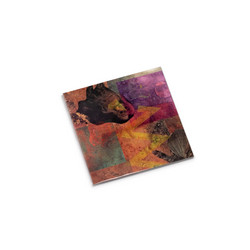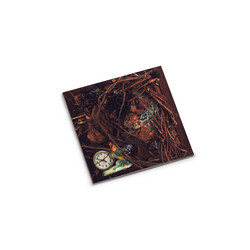Tip! Tip! Tip! This work consists of sound and a collection of AI-generated images. The image collection is a compilation of AI-generated images used in a projection at the Merzbow Free Noise concert held on January 6, 2025, at WWW in Shibuya, Tokyo. The use of such visuals in Merzbow is rare in recent years, and of course, the use of AI-generated images in a live performance is a first.
The concert was divided into two parts, and one of the rehearsal recordings of the songs performed in the first part is the first track on the CD, “Peacock Analogy.” This track mixes live recordings of computer sounds from Sonicware’s TextureLab, Oscillator, and CD. The second track, “Tenbyo Caterpillar 1,” is one of Merzbow’s most recent studio recordings. It features multiple layers of noise electronics and computer sounds overdubbed together.
The title “Peacock Analogy” is based on the fact that when using a peacock image as a reference image to generate a desolate urban landscape, buildings and metal structures shaped like peacocks were generated. This phenomenon appears to have been caused by a combination of several factors in AI image generation. The AI likely learned the distinctive shapes of peacocks (such as the spread of their feathers, the shape of their necks, and their overall silhouette) from the peacock image, and when generating the urban landscape, the AI may have attempted to apply the learned peacock shape patterns to the buildings and metal structures in the city. In this case, since the prompt used vague expressions such as “ruined city” and “metal structures,” the AI is believed to have been strongly influenced by the reference image of the peacock. “Analogy” is the process by which AI recognizes similarities between different concepts and transfers patterns from one concept to another. In this case, the AI may have recognized similarities between the shape of the peacock and the shape of buildings and metal structures, and applied the peacock’s shape to them. In this way, AI image generation can sometimes produce unexpected results.
“Mimesis” is an artistic theory proposed by the ancient Greek philosophers Plato and Aristotle, which refers to the concept that works of art imitate the real world and nature. Traditional art has emphasized the faithful reproduction of reality or the expression of an idealized reality. AI art generates images by learning from a large amount of image data and recognizing patterns. In this sense, AI can be seen as “imitating” existing images. Furthermore, mimesis in AI art is not merely imitation but can be considered part of a creative process. By generating new images based on learned data, AI has the potential to expand human creativity and open up new possibilities for artistic expression.
“Imitation” has negative connotations such as ‘counterfeit’ and “fake.” Since AI generates images by learning from existing data, there are various opinions that it lacks originality, or that it lacks rarity because it can generate a large number of images in a short time, or that it lacks artistic value because it has no emotions. Is AI art like mass-produced “junk art”? Is AI art “something that resembles art but is not art”? Discussions continue on how AI art will change traditional concepts of art, how it will expand human creativity, whether AI-generated images are art at all, who the creator is, and where the copyright lies.
